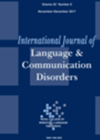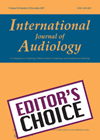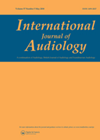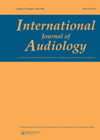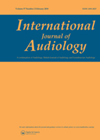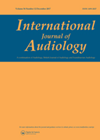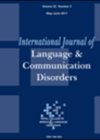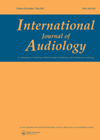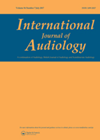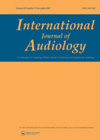
Journal Reviews
Speech perception in the ageing population
Speech perception can present a challenge as we grow older. One of the factors responsible is, of course, hearing loss. Now research indicates that other non-auditory factors like cognitive decline may also contribute to difficulties in understanding speech. The authors...
Attitudes towards leisure noise
Noise is a very common reason for hearing loss. The question is whether young adults realise the danger of developing a noise related hearing loss. The aim of this study was to evaluate the attitude towards leisure noise and noise...
Does stress and anxiety worsen idiopathic sudden hearing loss outcomes?
There have been suggestions that the natural course of the idiopathic sudden sensorineural hearing loss (ISSNHL) is not affected by intensive therapy. There is speculation as to whether unknown factors affect the treatment prognosis. This is a retrospective study of...
Maturation of BC attenuation
The aim of this study was to clarify the reason for differences between bone-conduction hearing in adults and infants. The authors investigated how the sound pressure level in the ear canal changes depending on the bone-conduction transducer placement. By using...
Directional microphones and speech
This study aimed to research how speech recognition, listening effort and localisation depends on hearing aids’ microphone configuration in people with moderate to severe hearing losses. Eighteen participants with sensorineural, symmetrical, moderate to severe hearing loss were tested. Participants were...
How to talk about hearing aid costs?
Money is always a controversial topic if discussed in reference to healthcare. This study raises the interesting topic of difficulties when it comes to discussing the costs of hearing aids with customers. Sixty-two audiological appointments were recorded and discussions concerning...
British English speech test for occupational hearing assessment
It is very important to properly assess occupational fitness for several occupations such as police officer, military personnel or fire fighter. The aim of this study was to develop a British English speech in noise (SiN) test as a tool...
Self-report of hearing aids handling difficulties
The authors have raised an interesting subject concerning the ability of customers to self-assess their hearing aid handling skills. Previous studies showed that 96% of customers when asked if they are able to manage their hearing aids answered ‘yes’. However,...
Importance of face-to-face communication in clinical practice
Breakdowns in communication with patients who have difficulty in understanding, speaking or hearing may occur during a consultation. The authors of this paper studied the hearing-related breakdowns in communication especially amongst older adults with hearing impairment (HI) using conversational analysis...
Use of technological aids and interpretation services
Hearing loss attracts large interest among researchers all over the world due to its prevalence and negative psychological side-effects. Usually hearing loss is managed with hearing aids. However, there are several additional technologies that can be of great help for...
Single sided deafness and cochlear implants
Cochlear implants (CI) can restore hearing in the profoundly deaf ear. Risk/ benefit and cost considerations dictate strict criteria that must be met for patients to be eligible. People with single-sided deafness are not eligible to receive a cochlear implant...
Tinnitus and leisure noise
Tinnitus attracts large interest among researchers all over the world due to its negative psychological side-effects. Researchers from the National Acoustic Laboratory (NAL) tested life-time noise exposure and its influence on the tinnitus experience in 1435 young Australians from various...

